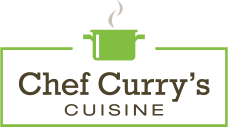Now that we’re in the new ye…decade, it’s time for me to get back onto the blogging horse. I recently read an article that *really* caught my attention, because it’s exactly what I’ve been preaching with my chef service for years now. The core idea of the article is that there are a LOT of benefits for a family to eat dinner together, and actually have real conversations. I’m splitting this up into four blog posts, as this article has a LOT to say, and you’d be asleep before I finished if I tried to tackle it all in one.
First, I’ll post a link to the article, since not citing sources is a cardinal sin in the world of information: https://www.washingtonpost.com/lifestyle/on-parenting/taking-back-the-family-dinner-how-we-created-a-mealtime-renaissance/2019/08/19/b3d8c4e8-82ee-11e9-933d-7501070ee669_story.html
I’m going to post some quotes from the article here, and expound on why I know these to be true. First, the author says, “As a family therapist, I often have the impulse to tell families to go home and have dinner together rather than spending an hour with me.” That’s a very powerful statement.
That’s a therapist, who gets paid to sit down with families and work out problems, telling them that they’d be better off having a meal together than sit with them for a session. To back up the statement, this quote is given, that really brings the truth home, ” For starters, researchers found that for young children, dinnertime conversation boosts vocabulary even more than being read aloud to. The researchers counted the number of rare words – those not found on a list of 3,000 most common words – that the families used during dinner conversation. Young kids learned 1,000 rare words at the dinner table, compared to only 143 from parents reading storybooks aloud. Kids who have a large vocabulary read earlier and more easily.”
I could easily end this blog post on that alone, but I want to expound on this point before I move on with some experiences I had growing up. As some of you may know, I spent most of my childhood with my grandparents. My grandmother was an amazing cook, and took pride in the outpouring of love that she was able to provide through her food. I was definitely a beneficiary of this.
Now I will admit, my grandparents and I weren’t sitting around the dinner table eating every evening. However, by FAR my fondest memory of childhood is sitting on their couch eating dinner off a TV tray, watching Looney Tunes. My grandfather absolutely loved all of the Road Runner cartoons, and to this day those dinner experiences are my favorite memory.
Finally on this point, in some other reading I did I discovered that in our brains, the parts that handle food and memory are *right* next to each other, so we as humans readily form memories based on food. This makes sense if you think about it. When we were hunter-gatherers, we needed to remember where our last meal came from, since we couldn’t be sure where the next one would come from.
What kinds of memories are your kids forming around food? Is it you running around, cursing angrily because there isn’t anything to eat, or are they happy memories, that they’re going to pass along to their kids? I want those to be happy memories, since I know how valuable those memories are.
Until next time, when I go more into the meat and bones (pun intended) of the Washington Post article.
[/et_pb_text][/et_pb_column] [/et_pb_row] [/et_pb_section]
